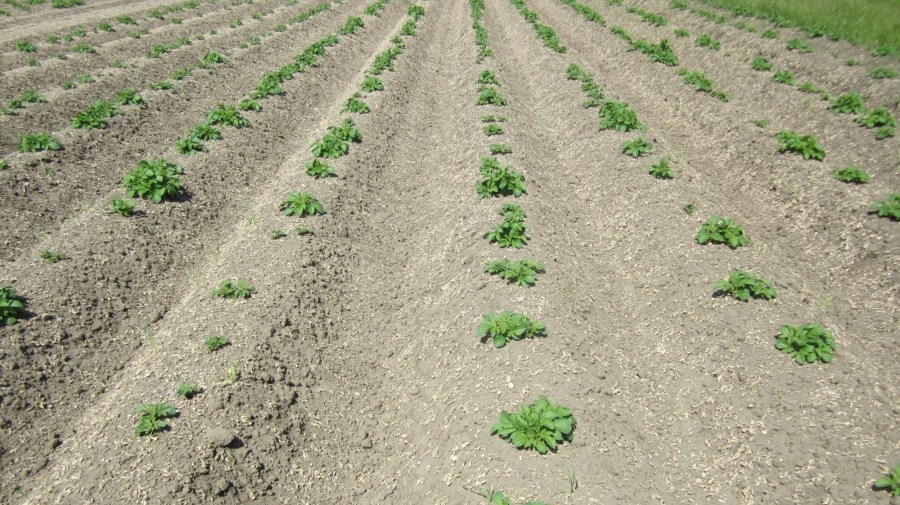With spring quickly approaching, it’s time for potato growers to dust off their planters and start thinking about getting this year’s crop into the ground.
And of course, with a new crop comes a new generation of weeds to tackle. But with weed pressures and chemical resistance constantly evolving, growers are having to adopt subtly different weed control tactics.
According to James Cheesman, crop specialist at Belchim Crop Protection, weed control decisions should be driven ultimately by soil type and the variety of potato planted.
“There’s a wide spectrum of weeds that burden potato growers, so it’s important to take this into account too – specifically in terms of what your own on-farm pressures are – as well as factors like the topography of the land and the soil type.”
When it comes to controlling broadleaf weeds pre-emergence, Belchim’s product Praxim (metobromuron) is a proven aid to growers, particularly in difficult conditions, adds James. “Praxim has been on the market for five years now and, as a flexible mixer partner, it can be the cornerstone for any residual weed control programme.
“It works particularly well where conditions are suboptimial – such as dry seedbeds – and another benefit is that it has no aquatic or arthropod buffer zone, or restrictions in terms of soil types and varieties.”
With eight years worth of trials data under its belt, Praxim has proved effective on a wide spectrum of weeds, but can be particularly beneficial where fat hen is present, he explains. “Last year, fat hen was certainly one of the key weed challenges for growers and it seemed to come through everything.
“Seedbed conditions at application are going to be what drives decent weed control – or not – so I strongly recommend considering going a little earlier this year to utilise any moisture on the ridge or bed.
“Effectively, good weed control comes down to that attention to detail.”
For contact weed control, Belchim’s product Gozai (pyraflufen-ethyl) also offers a very good, broad spectrum of control, says James. “Two of the weeds I always talk about are mayweed and groundsel because we’re getting resistance building up with them throughout the rotation.
“But Gozai can be used to tackle these, as well as other key weeds such as chickweed and poppies – it’s just all about hitting them at the key growth stage and trying to control them with different modes of action where possible.”
While in general, potato growers have a pretty robust armoury when it comes to residual weed control, it’s important to keep a focus on the effectiveness of applications this season to get the most out of the crop, notes James. “The difficultly often comes when growers have a large area of ground to cover and weed control sometimes becomes slightly sidelined.
“My advice is to split residuals up, get some on slightly earlier if you can (10 days after planting) and then you can focus on topping up seven days pre-emergence to guarantee that level of control.”
To find out more about Belchim’s product portfolio, visit: www.belchim.co.uk
 Click here for more information on Gozai
Click here for more information on Gozai
 Click here for more information on Praxim
Click here for more information on Praxim




